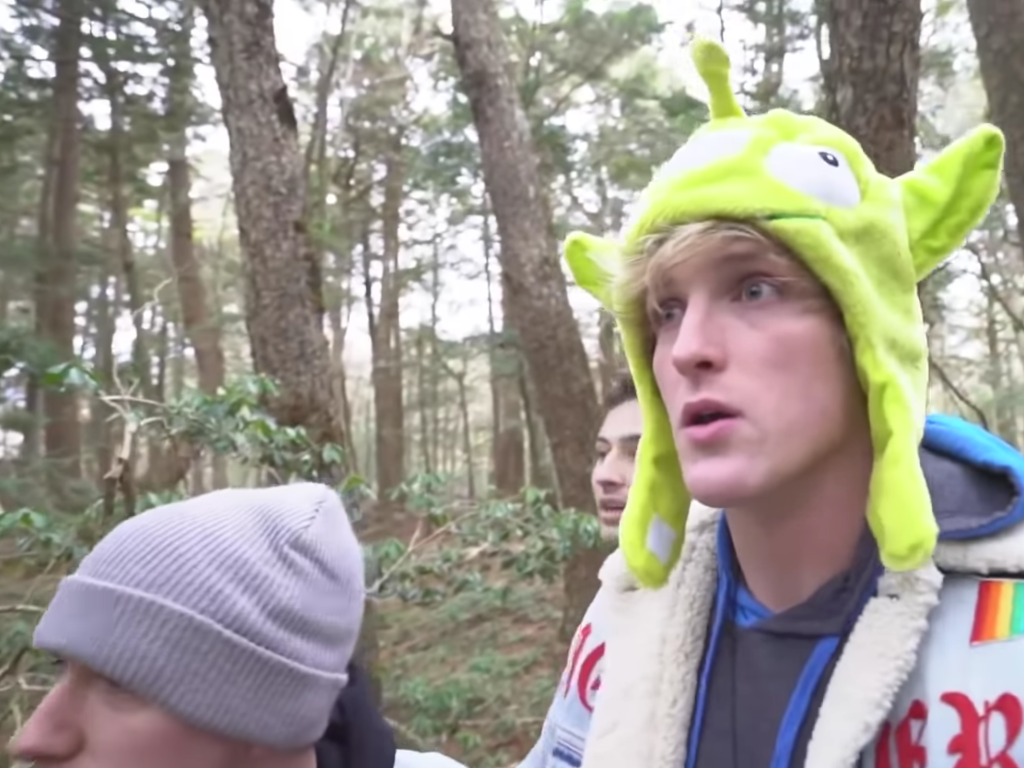More problems and controversy for Logan Paul, the YouTube star who caused a strong public backlash when he posted a video of a suicide victim in Japan. Google’s video platform today announced that it would be pulling advertising temporarily from his video channel in response to a “recent pattern of behavior” from him.
This is in addition to Paul’s suspensions from YouTube’s Preferred Ad program and its Originals series, both of which have been in place since January; and comes days after YouTube’s CEO promised stronger enforcement of YouTube’s policies using a mix of technology and 10,000 human curators.
In response to Logan Paul’s recent pattern of behavior, we’ve temporarily suspended ads on his channels.
— YouTube Creators (@YouTubeCreators) February 9, 2018
Since coming online again after a one-month break from the service in the wake of the Japanese video, in addition to the usual (asinine) content of his videos, Paul has tasered a rat, suggested swallowing Tide Pods, and, according to YouTube, deliberately tried to monetize a video that clearly violated its guidelines for advertiser-friendly content (we’re asking if we can get a specific reference to which video this might be — they all seem pretty offensive to me, so it’s hard to tell).
“After careful consideration, we have decided to temporarily suspend ads on Logan Paul’s YouTube channels,” a spokesperson said to TechCrunch in an emailed statement elaborating on the Tweet. “This is not a decision we made lightly, however, we believe he has exhibited a pattern of behavior in his videos that makes his channel not only unsuitable for advertisers, but also potentially damaging to the broader creator community.”
Yesterday, during a series of “Fake News” hearings in the U.S. led by a Parliamentary committee from the UK, YouTube’s global head of policy Juniper Downs said that the company had found no evidence of videos that pointed to Russian interference in the Brexit vote in the UK, but the platform continues to face a lot of controversy over how it vets content on its site, and how that content subsequently is used unscrupulously for financial gain. (YouTube notably was criticised for taking too long to react to the Japanese video that started all of Paul’s pain.)
This is a contagion problem for YouTube: not only do situations like his harm public perception of the service — and potentially have an impact on viewership — but it could impact how much the most premium brands choose to invest on ads on the platform.
Interestingly, as YouTube continues work on ways of improving the situation with a mix of both machine learning and human approaches, it appears to be starting to reach beyond even the content of YouTube itself.
The Tide Pod suggestion came on Twitter — Paul wrote that he would swallow one Tide Pod for each retweet — and appears to have since been deleted.
Generally, YouTube reserves the right to hide ads on videos and watch pages — including ads from certain advertisers or certain formats.
When a person makes especially serious or repeated violations, YouTube might choose to disable ads from the whole channel or suspend the person from its Partner program, which is aimed at channels that hit 4,000 watch hours in 12 months and 1,000 subscribers, and lets the creators make money from a special tier of ads and via the YouTube Red subscription service. (This is essentially where Paul has fallen today.)
Since YouTube is wary of getting into the censorship game, it’s leaving an exit route open to people who choose to post controversial things anyway. Posters can turn off ads on individual videos. From what we understand, Paul’s channel and videos will get reevaluated in coming weeks to see if they meet guidelines.
It’s not clear at all how much Paul has made from his YouTube videos. One estimate puts his YouTube ad revenue at between $40,000 and $630,000 per month, while another puts it at $270,000 per month (or around $3.25 million/year). To note, he’d already been removed from the Preferred program and the Originals program, so that would have already dented his YouTube income.
And you have to ask whether suspending ads really fixes the bigger content issues on the platform. While an advertising suspension might mean a loss of some revenue for the creator, it’s not really a perfect solution.
Logan Paul, as one example, continues to push his own merchandise in his videos, and as a high-profile figure who has not lost his whole fan base, he will still get millions of views (and maybe more now because of this). In other words, the originally violating content (and a viable business model) is still out there, even if it doesn’t have a YouTube monetizing element attached to it.
On the other hand, SocialBlade, one of the services providing analytics on YouTube creators, notes that Paul’s views have dropped 41 percent, and subscribers are down 29 percent in the last month, so maybe there is a god.































Comment